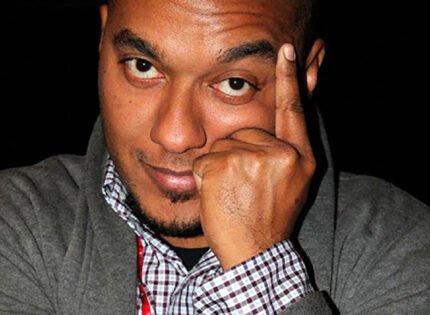The Caribbean
Canada issues Zika travel warning for the Caribbean
Canada has joined the United States in issuing a travel advisory for pregnant women traveling to the Caribbean in the wake of the outbreak of the Zika virus.
“It is recommended that pregnant women and those considering becoming pregnant discuss their travel plans with their health care provider to assess their risk and consider postponing travel to areas where the Zika virus is circulating in the Americas,” said the Public Health Agency of Canada in a statement issued.
“If travel cannot be postponed [travellers should] follow strict mosquito bite prevention measures to protect themselves against bites,” the statement added, stating that this should be done particularly for those travelling to areas where Zika virus is circulating.
“There is no vaccine or medication that protects against Zika virus infection,” warned the Public Health Agency of Canada, urging potential travelers to consult a health care provider or visit a travel health clinic preferably six weeks before travel.
In 2015, Zika virus was reported for the first time in a number of countries in Central and South America, as well as in Mexico. Past outbreaks of Zika virus infection have been reported in Africa, Asia and the Oceanic Pacific region.
The Public Health Agency of Canada said there have been travel-related cases of Zika virus reported in Canada in returned travelers from countries where the virus is known to circulate.
But it said there have been no reported cases of locally acquired Zika virus in Canada.
Canada’s warning comes as the Washington-based Pan American Organization (PAHO) cautioned that the Zika virus is spreading rapidly through the Americas, including the Caribbean, and could potentially reach all countries, except Canada and continental Chile.
Jamaica
Jamaicans go to the polls on February 25th
Prime Minister Portia Simpson Miller has announced that Jamaica’s next general election will be held on Thursday February 25, 2016. Nomination day has been set for next Tuesday February 9, 2016.
The vote had to come by December, but Prime Minister Portia Simpson Miller says her People’s National Party is ready now.
She made the announcement at a late Sunday rally in Jamaica’s capital to cheering supporters decked out in orange, the color of her party. Simpson Miller says her team is committed to a “peaceful campaign.”
The contest will pit her faction against the Jamaica Labor Party led by former Prime Minister Andrew Holness. He led Jamaica for just over two months before his party lost 2011 elections by a 2-1 margin.
Simpson Miller is seeking a second consecutive term. She became Jamaica’s first female leader during a year-and-a-half stint in office that ended in 2007.
The Caribbean
Reparation not handouts says Beckles
The chairman of the Caribbean Community (CARICOM) Reparations Commission, Sir Hilary Beckles, says Caribbean countries are not looking for “hand outs” as a result of its call for reparation for the slave trade.
Professor Beckles, speaking at a public lecture on Reparation organized by Oxford University, said a suggestion by European countries that ‘they have not moved on…sorry it is a closed chapter there is nothing to discuss” does not negate the call for compensation.
“What reparatory justice says is: these are the children who are now disposed, disenfranchised. We are the children. We have now said: ‘Hold on dad, hold on a second, you gave our mother a raw deal, you gave us a raw deal, we want to talk about our education, our health, we want you to come back and participate in our upbringing,” Sir Hilary said, as he juxtaposed the salve trade to an abusive marriage.
“That’s what we are asking you to do. We are not asking you for handouts. We are asking for a moral conversational, a legal conversation about justice,” he said.
The Vice Chancellor of the University of the West Indies (UWI) said that reparatory justice is about “dealing with these issues”.
Professor Beckles said that the Caribbean is faced with a “chronic disease explosion where 60 per cent of all the Black people in the region over the age of 60 have type 2 diabetes, hypertension.
“Every day in Barbados someone loses a limb…because of the rampant explosion of diabetes. So we have the illiteracy, we have diabetes, we have no institutions, there are no museums on slavery in the Caribbean”.
Sir Hillary said it would be difficult to say to a Caribbean government, struggling with debt and other problems to take five million pounds to build a museum to slavery when there are other pressing issues.
Comparative Medical researches have shown that West Indians don’t respond to hypertension drugs as well as the British do. The lower response of Caribbean people to hypertension drugs developed by metropolitan countries for their citizens has left the region with a high incidence of hypertension and diabetes. The root of these problems have been linked to slavery.
The problem that has continued to dog the Caribbean is that it does not have the money to implement programs to deal with the issues that it have been left with as a result of slavery. These issues include poverty, health care problems and dysfunctional institutions among others
The visit to Britain comes as CARICOM is expected to send a letter to British Prime Minister David Cameron formally requesting a meeting this year on the start of discussions on reparatory justice within the context of Caribbean development.
Haiti
Haitians will be without a president after the 7th
Haiti’s current president is supposed to leave office on Sunday, but there is no one to take his place.
Haitians have been protesting all week against the nation’s electoral process after disputed elections in the fall saw current President Michel Martelly’s chosen successor take the lead.
The Caribbean island held presidential elections on Oct. 25, 2015. Since no candidate won a majority of the vote, a run-off election was scheduled for Dec. 27.
In the first round, Banana exporter Jovenel Moise and mechanical engineer Jude Celestin won most of the votes at 32.8 percent and 25.3 percent, respectively. Moise is Martelly’s chosen successor. More than 50 others ran for the nation’s top post.
The runoff was postponed several times due to protests — which sometimes turned violent — against what the opposition called fraud in the first election.
Martelly, who is constitutionally barred from running again, postponed the runoff to Jan. 17, Jan. 24 and then the latest date of April 24.
However, his term constitutionally ends on Feb. 7.
The Haitian Senate proposed a plan in which Martelly would leave office as planned on Sunday, and a consensus prime minister would run the country until a new president was elected.
But opposition groups don’t want Martelly involved in any short-term plan.
“Martelly has no role he can play,” said Samuel Madistin, who represents one of the opposition coalitions, which includes Celestin, according to the Associated Press. “The proposition being discussed is like something in a game by playing children.”
Instead, the opposition wants a transitional government led by a Supreme Court leader to verify disputed results from the October elections. Haiti’s nine-member Provisional Electoral Council says it lacks the authority to form a verification commission.
Celestin boycotted the planned runoff in January, calling the process “a farce.”














